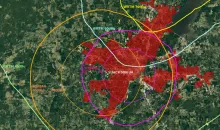REC Networks has had a chance to review the language of the Ask Musicians For Music Act of 2019 or AM-FM Act as submitted by Rep. Jerrold Nadler (D-NY-10).
The intention of the bill is to put into place a method where the recording industry would obtain payment in connection with music played on terrestrial radio. Historically, radio has been on a statutory exemption as it was perceived that radio acutally promotes music. When you look at today's post 80-90 environment with stations so heavily narrowcasted and the lack of local talent (i.e. DJs) and more of a public expectation of "more music and less talk", especially when faced with competition by "non-radio" (streaming) services, with the exception of a small number of noncommercial and commercial stations that still care about the music, radio is not promoting music. When was the last time you heard a DJ say what label a certain song is on? For many years now, the recording industry had relegated that task to Walmart.


 REC has
REC has 